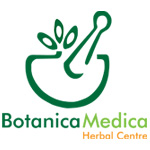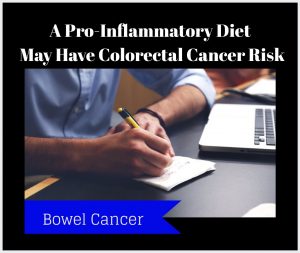Association of Dietary Inflammatory Potential With Colorectal Cancer Risk in Men and Women
Key Points
Questions: Do pro-inflammatory dietary patterns increase the risk of developing colorectal cancer?
Findings: In this cohort study that followed 121 050 adults for 26 years, intake of pro-inflammatory diets as evidenced by higher scores on an empirical dietary inflammatory pattern score was associated with a significantly higher risk of developing colorectal cancer in both men and women.
Meaning Inflammation is a potential mechanism linking dietary patterns and colorectal cancer development, and strategies to reduce the adverse role of a pro-inflammatory diet may reduce colorectal cancer risk.
Importance: Inflammation is important in colorectal cancer development. Diet modulates inflammation and may thus be a crucial modifiable factor in colorectal cancer prevention.
Objective: To examine whether pro-inflammatory diets are associated with increased colorectal cancer risk by using an empirical dietary inflammatory pattern ((EDIP) composed of food groups as reported on a food-frequency questionnaire) score based on a weighted sum of 18 food groups that characterizes dietary inflammatory potential based on circulating levels of inflammation biomarkers.
Design, Settings, and Participants: Cohort study of 46 804 men (Health Professionals Follow-up Study: 1986-2012) and 74 246 women (Nurses’ Health Study: 1984-2012) followed for 26 years to examine associations between empirical dietary inflammatory pattern scores and colorectal cancer risk using Cox regression. We also examined associations in categories of alcohol intake and body weight. Data analysis began January 17, 2017, and was completed August 9, 2017.
Exposures: empirical dietary inflammatory pattern scores calculated from food frequency questionnaires administered every 4 years.
Main Outcomes and Measures: Incident colorectal cancer.
Results: We documented 2699 incident colorectal cancer cases over 2 571 831 person-years of follow-up. Compared with participants in the lowest empirical dietary inflammatory pattern quintile (Q) who had a colorectal cancer incidence rate (per 100 000 person-years) of 113 (men) and 80 (women), those in the highest Q had an incidence rate of 151 (men) and 92 (women), leading to an unadjusted rate difference of 38 and 12 more colorectal cancer cases, respectively, among those consuming highly pro-inflammatory diets. Comparing participants in the highest vs lowest empirical dietary inflammatory pattern Qs in multivariable-adjusted analyses, higher empirical dietary inflammatory pattern scores were associated with 44% (men: hazard ratio [HR], 1.44; 95% CI, 1.19-1.74; P < .001 for trend), 22% (women: HR, 1.22; 95% CI, 1.02-1.45; P = .007 for trend), and 32% (men and women: pooled HR, 1.32; 95% CI, 1.12-1.55; P < .001 for trend) higher risk of developing colorectal cancer. In both men and women, associations were observed in all anatomic subsites except for the rectum in women. In subgroups (P ≤ .02 for all interactions), associations differed by alcohol intake level, with stronger associations among men (Q5 vs Q1 HR, 1.62; 95% CI, 1.05-2.49; P = .002 for trend) and women (Q5 vs Q1 HR, 1.33; 95% CI, 0.97-1.81; P = .03 for trend) not consuming alcohol; and by body weight, with stronger associations among overweight/obese men (Q5 vs Q1 HR, 1.48; 95% CI, 1.12-1.94; P = .008 for trend) and lean women (Q5 vs Q1 HR, 1.31; 95% CI, 0.99-1.74; P = .01 for trend).
Conclusions and Relevance: Findings suggest that inflammation is a potential mechanism linking dietary patterns and colorectal cancer development. Interventions to reduce the adverse role of pro-inflammatory diets may be more effective among overweight/obese men and lean women or men and women who do not consume alcohol.
At Botanica Medica our Naturopaths are well aware of the importance of a good diet and the effect it can have on your life both physically and mentally. They come across lots of interesting studies and are always updating their knowledge. If you would like to make an appointment with one of our Naturopaths call Botanica Medica on 8271-1827 today. They are only to happy to share the knowledge they have gained through their studies and patient outcomes, and get you feeling better. Botanica Medica is located at 97 Glen Osmond Road, Eastwood and appointments are available Monday to Saturday including some after hours.
January 18, 2018
Association of Dietary Inflammatory Potential With Colorectal Cancer Risk in Men and Women
Fred K. Tabung, MSPH, PhD1,2; Li Liu, MD, PhD1,2,3,4,5; Weike Wang, PhD1,2; et alTeresa T. Fung, PhD1,6; Kana Wu, MD, PhD1; Stephanie A. Smith-Warner, MS, PhD1,2; Yin Cao, MPH, ScD1,7; Frank B. Hu, MD, PhD1,2,8; Shuji Ogino, MD, PhD2,4,9; Charles S. Fuchs, MD, MPH4,8,10; Edward L. Giovannucci, MD, ScD1,2,8
Author Affiliations Article Information
JAMA Oncol. Published online January 18, 2018. doi:10.1001/jamaoncol.2017.4844
Artwork created in Canva


Recent Comments